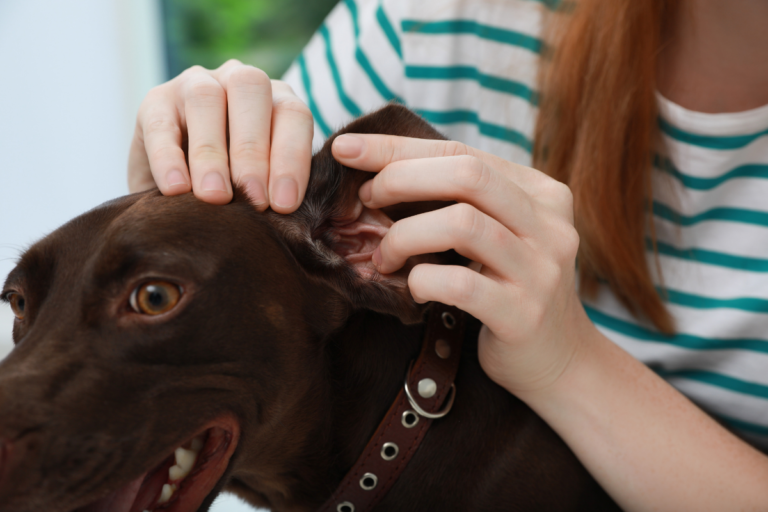Wellness from Wagging Tails: Nurturing Dog Mental Health
Impact of Dogs on Mental Health
Owning a dog isn’t just about fetching sticks or endless rounds of fetch. Our furry pals have a knack for brightening our mental state. They not only get us moving but also lend us an ear (or two) when we need it most.
Get Moving, Feel Better
Having a four-legged friend practically guarantees you’ll be up and about more often. Why’s that matter? Well, moving your body can actually help lift your mood. According to NCBI, dog folks tend to clock more steps than those without a pet. We’re talking a hefty difference:
| Group | Average Daily Steps |
|---|---|
| Dog Owners | 10,000 |
| Non-Owners | 7,000 |
Our pups do more than keep us fit—they’re little conversation starters too. Walking your dog can lead to chit-chats with neighbors, helping beat that lonely feeling. Got questions on dog health? Peek at our page about dogs heart.
Emotional Lifelines on Four Legs
Dogs doubling as Emotional Support Animals (ESAs) have a special gift. They soothe our minds. Back in 2020, a big survey found ESA dogs made life better for their owners (Wikipedia). From kicking anxiety to offering an energy boost, their benefits are nothing short of magical.
Here’s a quick run-down:
| Benefits | Description |
|---|---|
| More Security | ESA owners feel safer and way less stressed. |
| Independence | ESA dogs help with daily tasks, promoting autonomy. |
| Sleep Boost | Snoozing with an ESA can give you better z’s. |
| Mental Peace | Eases symptoms of stress and blues. |
When COVID locked us down, pets stepped up. Around 90% of folks in a UK study said their pets provided them vital support, especially those down-in-the-dumps even before the pandemic hit.
In a nutshell, dogs pack a punch in boosting mental vibes. Whether they’re nudging us into action or offering a comforting cuddle, they shape our happiness and health. Want to learn more about how pets support health? Check out our pages on dog heart disease and dog diabetes symptoms.
Mental Health Benefits of Owning a Dog
So, you’ve thought about snagging a furry buddy, or you’re just curious about how these lovable fluffballs can help with mental stress. Well, let’s explore how dogs are bringing joy and strength to mental health for many of us.
Quality of Life Upgrade
Back in 2020, a worldwide survey looked into how having a dog as a support buddy changed the game for many people (Wikipedia). Owners said they felt safer, more independent, and even had a pep in their step. Believe it or not, they also slept better with their canine pals by their side. Talk about a life boost!
| Benefit | Percentage of Surveyed Participants |
|---|---|
| Feeling Secure | 90% |
| More Energy | 85% |
| Better Sleep | 80% |
Ride Out the Lockdowns
Remember the COVID lockdowns? Man, those weren’t easy. But dogs were like tiny therapists without the hourly fee! Around 6,000 folks in the UK chattered away about how their pets were the heroes of quarantine (Wikipedia). Almost 90% insisted their pup helped fend off that loneliness monster, especially for those who were already wading through mental murkiness.
Thinking about how to care for your animal pal? Check out our tips on cavalier health and dogs and ticks for some handy nuggets of wisdom.
Good Vibes for Mental Health Battles
Back in 2018, a bunch of smart folks scoured 17 different studies and agreed: dogs are like walking mood boosters for people with mental struggles. They offer sweet distraction, companionship, and that much-needed calm. Sure, they called for more digging into the doggy-mental connection, but our furry therapists are already lighting up lives.
When it comes to specific mental health hurdles, dogs can be ace partners in tackling:
- Anxiety
- Depression
- PTSD
Want to learn more about how dogs help with certain conditions? Peek at our advice on dog heart failure and dog diabetes symptoms.
Wrapping It Up
Fur sure, dogs are more than just pets. They lift us up, stand by us when things get sticky, and help flatten those mental bumps. If you’re itching to know which dogs are top-notch for giving emotional hugs, head over to our guide on best breeds for emotional support.
Dogs as Emotional Support Animals
Support for Specific Mental Health Conditions
Dogs as Emotional Support Animals (ESAs) do wonders for people dealing with mental health challenges. You won’t believe how amazing they can be at soothing things like anxiety, panic attacks, depression, chronic stress, ADHD, or PTSD (HelpGuide.org).
Why are ESAs great for mental health?
| Mental Health Condition | How ESAs Help |
|---|---|
| Anxiety | Eases those nagging feelings and spreads calm. |
| Panic Attacks | Offers quick comfort to fend off panic. |
| Depression | Lifts spirits and gives a sense of worth. |
| Chronic Stress | Reduces stress hormone levels. |
| ADHD | Offers friendship and helps with routine. |
| PTSD | Provides security and interrupts flashbacks. |
Qualifications and Training of ESAs
Getting a dog officially recognized as an Emotional Support Animal is pretty straightforward. A licensed mental health professional needs to decide you’ve got a mental health condition, and that your furry pal is beneficial. No fancy seal of approval is needed, but your healthcare provider will give you a letter saying this buddy is necessary. (UMass Med School).
Training of ESAs:
- Basic Obedience: Your dog needs to nail the basics – sit, stay, and come.
- Social Skills: Good manners in public are a must.
- Calm Demeanor: Staying chill in different situations is key for comfort.
Unlike service dogs for psychiatric needs, ESAs don’t need fancy training for specific tasks. Still, they must be well-mannered and have basic training to truly benefit their human. For details on what Psychiatric Service Dogs (PSDs) can do, check out our section on Psychiatric Service Dogs for Mental Health.
For dog lovers worried about their pet’s health, staying informed is a must. Issues like dog gum disease, dog heart failure, and dog diabetes symptoms are serious, and it’s the owner’s job to stay on top of them. Knowledge is power, so dive into these topics and keep your pup in tip-top shape.
Never forget, while these furry friends provide amazing companionship, they aren’t a total replacement for professional mental health care. Keep up with any treatments or therapies you’ve been prescribed – your ESA can be the perfect sidekick. For more tips on keeping your fluffy buddy fit and flourishing, see our piece on healthiest dog breeds.
Best Dog Breeds for Emotional Support
Choosing a pup to snuggle up with when life’s got you down needs a bit of research. Let’s chat about three doggies who bring the love and snuggles 24/7: Golden Retrievers, Labrador Retrievers, and Poodles.
Golden Retrievers
Friendly and gentle, Golden Retrievers are like the friend who’s always there with a cup of hot cocoa (HelpGuide.org). These social butterflies have hearts full of love and a knack for making your worries melt away just by being nearby.
What Makes Goldens Golden:
- Super sociable
- Gentle and patient
- Eager to learn
- Trustworthy and devoted
They’re also quick learners, making them awesome companions. Just keep an eye on any health hiccups they might have.
Labrador Retrievers
If loyalty had a face, it would probably be wearing the sweet grin of a Labrador Retriever. These pooches just get feelings and seem to know exactly when to offer a little extra snuggle. They fit into pretty much any space and routine you throw at them with ease.
Why Labs Steal Hearts:
- Emotion whisperers
- Loyal like no other
- Can fit into any lifestyle
Taking home a Lab? Make sure you’re in the know about their health quirks.
Poodles
Poodles got brains and beauty. Calm and collected, they’re perfect for those moments you just need to breathe. Plus, they’re easy on the allergies (HelpGuide.org).
Poodles’ Best Bits:
- Smart as a whip
- Cool, calm, and collected
- Adjusts to nearly anything
- Kind to folks with allergies
They’re not just pretty faces; these pooches are great at jobs needing a bit of smarts. Keep tabs on health and vet visits, and they’ll keep you company for years.
| Pup | Star Traits | Heads-Up on Health |
|---|---|---|
| Golden Retrievers | Friendly, Gentle, Trainable | Health Checkups |
| Labrador Retrievers | Loyal, Sweet, Versatile | Watch for Issues |
| Poodles | Brainy, Cool, Allergy-Friendly | General Breed Health Concerns |
If you’re curious about how these breeds brighten up rough days, check out our section on dogs as Emotional Support Animals. Their unconditional love could be just what you need!
Psychiatric Service Dogs for Mental Health
When our noggin gets a little noisy, psychiatric service dogs roll up their non-literal sleeves to give us a helping paw. These furry heroes do more than just look adorable—they help folks tackle mental health hiccups like champs.
Tasks and Support Provided
Psychiatric service dogs are the ultimate companions for folks with mental speed bumps like anxiety, depression, or PTSD. Their job is to bring stability amidst the mental whirlwind.
| Task | What They Do |
|---|---|
| Alarm Clock Duty | These dogs will yank you out of a panic-plagued snooze or a bed-monster nightmare. |
| Personal Butler | Need water or meds? They’ll fetch those for you like it’s their life’s mission. |
| Emotional Hug Machine | These pooches are like a cozy blanket, making stress and anxiety shrink to puppy size. |
| Sensor Saviors | They know when things get too intense and can do things like deep-pressure smushes to calm the senses or nudge you to a chill zone. |
Need more paw-some info? Peek at cavalier health to learn more about dog-related wellness tricks.
Qualifying for a Psychiatric Service Dog
Not just anyone can snag one of these four-legged therapists. There are hoops to jump through, and it starts with proving your mental mishaps spill over into your daily doings.
- Stamped Diagnosis: A licensed mental health guru needs to jot down your mental tumbles as a disability. We’re talkin’ struggles like anxiety, depression, or PTSD.
- Daily Life Impact: It gotta be clear that your mental mix-ups get in the way of adulting.
- Pooch House & Care: You need to be up for the job of giving commands, keeping the pup healthy, and showering it with love (and maybe a dog biscuit or two).
Federal law has your back, making sure your dog can strut into public spots, hop on airplanes, and find digs without the headache of “No pets allowed” signs (CertaPet).
Curious about what these canine caregivers can do for your mental state? Click to explore the mental health perks of owning a dog and how to keep them tail-waggin’ happy too.
Therapy Dogs in Mental Health Care
Benefits of Therapy Dogs
Therapy dogs are like four-legged superheroes, swooping in to bring a little sunshine to the folks who need it most. You’ll find these fluffy warriors spreading joy in hospitals with sick kids, or sidling up to seniors in nursing homes to melt their worries away. Let’s be honest: who can resist a wagging tail and a droopy grin?
So, what’s their magic?
- Emotional Support: Therapy dogs are experts at melting away stress, anxiety, and those gloomy clouds of depression.
- Social Interaction: They’re natural-born conversation starters, helping people feel less alone and more connected.
- Improved Mood: Just being around these pups can turn a frown upside down and boost your spirit.
- Physical Benefits: Believe it or not, they can help bring your blood pressure down, keeping your ticker in tip-top shape.
| Benefit | Description |
|---|---|
| Emotional Support | Eases stress, anxiety, and depression |
| Social Interaction | Sparks conversations and keeps loneliness at bay |
| Improved Mood | Lifts spirits and promotes mental wellness |
| Physical Benefits | Helps maintain healthy blood pressure and heart health |
Requirements and Training
You’d think therapy dogs might just roll out of bed perfect, but becoming therapy legends takes some work. These pups need to be calm, cool, and collected. The super-friendly, treat-loving kind who don’t mind a bit of ear tugging or tail wagging from humans of all sizes and ages.
It’s all about the dog’s heart and temperament, not the breed. Even a mixed breed from the local shelter can make a pawsome therapy dog if they’ve got the right attitude. And guess what? They’ve gotta pass a few tests—like the American Kennel Club’s Canine Good Citizen exam—to get that official therapy dog badge.
Here’s the lowdown on making your dog a therapy pro:
- Behavior and Training: Brush up on the basics; make sure they sit, stay, and listen.
- Socialization: Take them on adventures to meet different people and explore new places.
- Canine Good Citizen Test: This is like their doggy driving license—showing they’re well-behaved.
- Therapy Dog Certification: Finally, get them certified by a recognized group.
Therapy dogs aren’t just pets—they’re furry therapists bringing cheer and comfort wherever their paws tread. Dive into more tips on healthy hounds, staying ahead of dog diseases, and choosing the best healthy dog breeds for a happy, wag-filled life!






